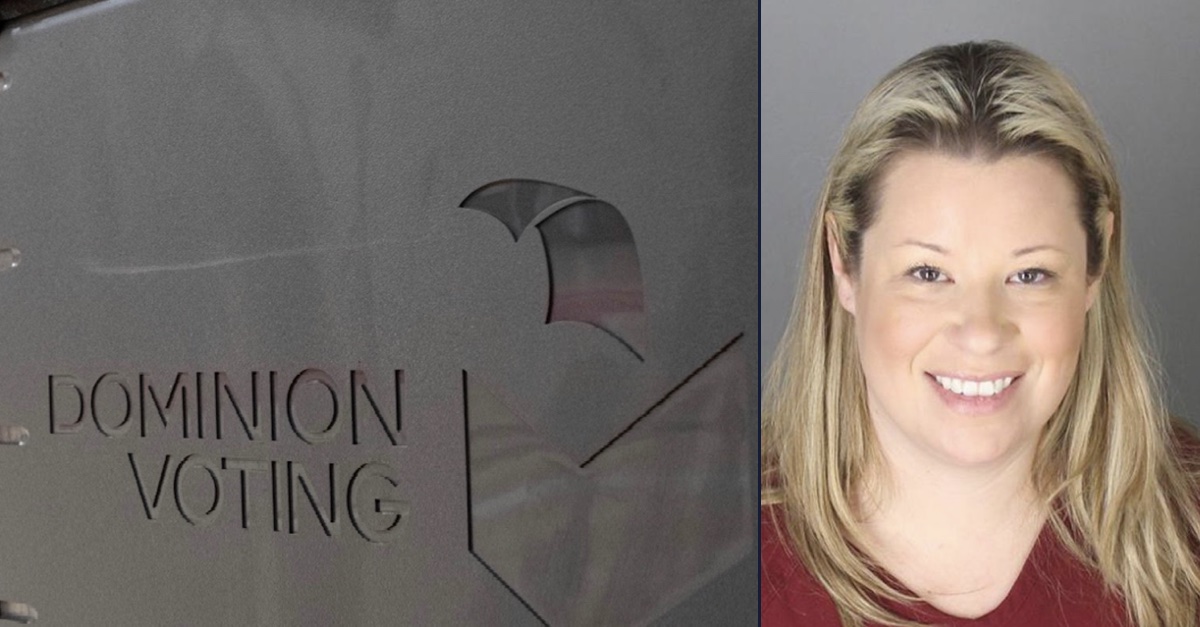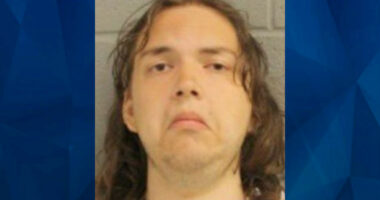
Left: A Dominion Voting ballot scanner at a polling location at an elementary school in Gwinnett County, Ga., outside of Atlanta on Jan. 4, 2021 (AP Photo/Ben Gray, File). Right: Stefanie Lambert (Oakland County Sheriff’s Office).
Lawyers for Dominion Voting Systems say that so-called “Kraken” attorney Stefanie Lambert — who has admitted to sharing discovery with a Michigan sheriff under the guise of reporting “criminal activity” to law enforcement — continues to defy court orders to hand over documents she has owed since August, and is incapable of following even “basic” rules.
Lambert — who was removed from her role representing ex-Overstock CEO Patrick Byrne in Dominion’s defamation case against him over the summer after being charged with voter machine tampering — has positioned herself as an expert litigator, but her actions have proved otherwise, the Dominion lawyers said.
“Ms. Lambert has described herself as the ‘foremost leading expert advocate and attorney in the country,”” Dominion attorney Davida Brook wrote in a Nov. 21 filing. “Such a lawyer should know how to follow basic rules of court. And of course, this particular Court has already repeatedly reminded both Ms. Lambert and Mr. Byrne of the importance of doing that.”
The filing from Dominion comes after Lambert failed to oppose the voting company’s Nov. 1 motion asking U.S. District Judge Carl Nichols, a Trump appointee, to set a deadline by which Lambert and Byrne must hand over affidavits related to a magistrate’s Aug. 13 order disqualifying Lambert from the case. That ruling came after Lambert was charged with four felonies related to alleged voter machine tampering in her home state of Michigan in 2020.
“Dominion’s motion is now unopposed and thus may be treated as conceded,” the Nov. 21 filing says — although it notes that Lambert and Byrne did manage to file an entirely separate motion in the case. That Nov. 15 motion, in which Lambert asks Nichols to undo U.S. Magistrate Judge Moxila A. Upadhyaya’s disqualification ruling, “was procedurally improper and should be denied,” the Dominion lawyers argue.








